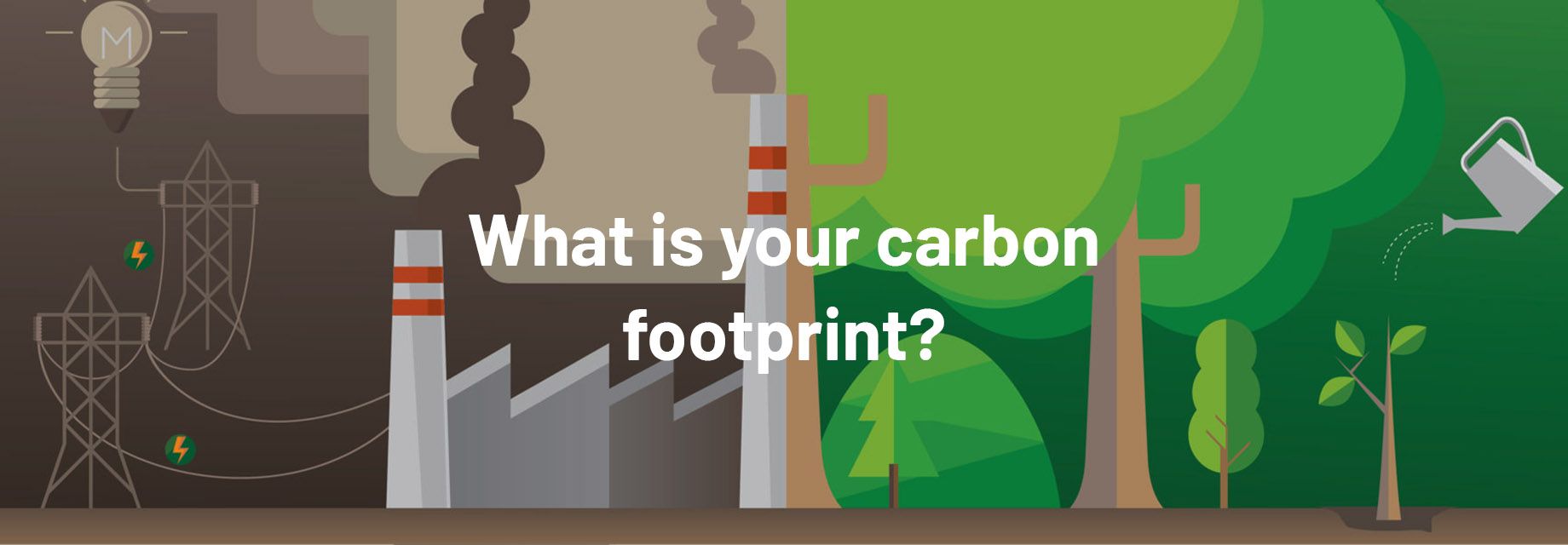
What is a carbon footprint and why is it important?
You may have heard the term carbon footprint before but you may not be entirely sure what it means or how it applies to you. Simply, a carbon footprint is a measurement of how much extra carbon dioxide you are responsible for releasing into the atmosphere.
If you think back to a time before cars, planes and fast food, humans lived a much simpler life. A typical family lived in a house built of wood, cooked using firewood and farmed their food. These people contributed little to no carbon dioxide in the atmosphere and therefore did not have a carbon footprint. Everything that family would use and grow would be a part of the natural carbon cycle. This is the process where carbon is captured through photosynthesis and released again when living things respire or when wood burns.
Today, the typical human being releases about 4 tonnes of carbon dioxide each year. Different countries have different averages. The average American releases about 20 tonnes a year as opposed to the average Indian who releases only 1 tonne. All this extra carbon dioxide goes into the atmosphere and contributes to global warming. Cars, aeroplanes, how we heat and use electricity in our homes, the clothes and food we buy, our leisure activities and how we build and manufacture all produce emissions.
What changes can you make to lower your carbon footprint?
Individually we all need to be focused on reducing our carbon footprint by making smart lifestyle decisions and purchases. Here are some smart choices you can make to help lower your carbon footprint.
Insulate your home
Insulating your home is a great investment you can make in reducing your carbon footprint. Insulating your home makes it easier to heat in the winter and cool in the summer. Fully insulating your home by ensuring it has ceiling, underfloor and wall insulation helps complete your thermal envelope. This helps to separate the inside and outside air and is effective at stopping heat transfer in your home. Whatever energy you spend into heating or cooling your home will be retained longer and require less energy. Not only will this save you money, but because you are using less energy, you are having a positive impact on your carbon footprint.
Reduce the amount of time you spend in your car
Using your car every day burns through a lot of energy. Using a car powered by fossil fuel is particularly bad for the environment. Here are a few ways you can reduce your dependency on your car.
- Try doing one weekly shop rather than heading to the supermarket every day.
- Use public transport or try to carpool where possible.
- If the option exists, try cycling or walking to work now and then.
- Think about upgrading your car to an electric or hybrid vehicle.
- See if you could work from home now and then.
Making a few smart changes to how you get around will help lower your carbon footprint even further
Make smart food choices
We all need to eat but making a few small changes to how, what and where we buy can also make a difference.
Most of us will buy the bulk of our food from the supermarket but how does it get there? Usually via big diesel trucks. Buying local produce means the food has to travel less to get to the supermarket in the first place.
Eating less meat is another great choice as it takes a lot of energy and grain for an animal to mature. That energy and grain could be used instead for human consumption. If everyone had a meat-free day even once a week it would have a significant impact on our global carbon footprint!
Washing and drying clothes
Your appliances use a lot of energy. Using your washing machine on a cold wash will significantly reduce the amount of energy it takes to clean your clothes. Hanging them outside to dry rather than using the dryer is another smart decision to lower your footprint. Buying the right appliances also makes a difference. Look out for energy labels when purchasing your appliances and make sure they have a high energy efficiency rating.
Change to LED Lights
You may not realise it but filament light bulbs are very inefficient. Only about 3 percent of the energy used is converted into usable light. Changing to LED bulbs will save on your power consumption as they are almost 100% efficient.
Recycle
Recycling unwanted materials is also great as, while it uses energy to recycle and reprocess them, it takes less energy to reuse them than producing fresh raw materials.
Lets work together to make a difference
Living in New Zealand we can be a little bit removed from the effects global warming is having on our planet but even in recent years, we have experienced many severe weather events that can be attributed to global warming. The bottom line is that if we don’t make the right changes now, it will be too late.
Get an idea of your current carbon footprint by taking a short 5-minute quiz here.
